Link building is thought to be one of the most effective ways to improve your rankings.
In fact, according to this Backlinko-Ahrefs study, more links usually means better rankings.

So when putting together a link building campaign, the first step is usually to look into how many links your competitors have for a particular keyword to figure out how many you’ll need to beat them.
For example, if we were trying to rank for the term “buy CBD oil,” we’d see that most of the top 10 pages have over 100 referring domains.
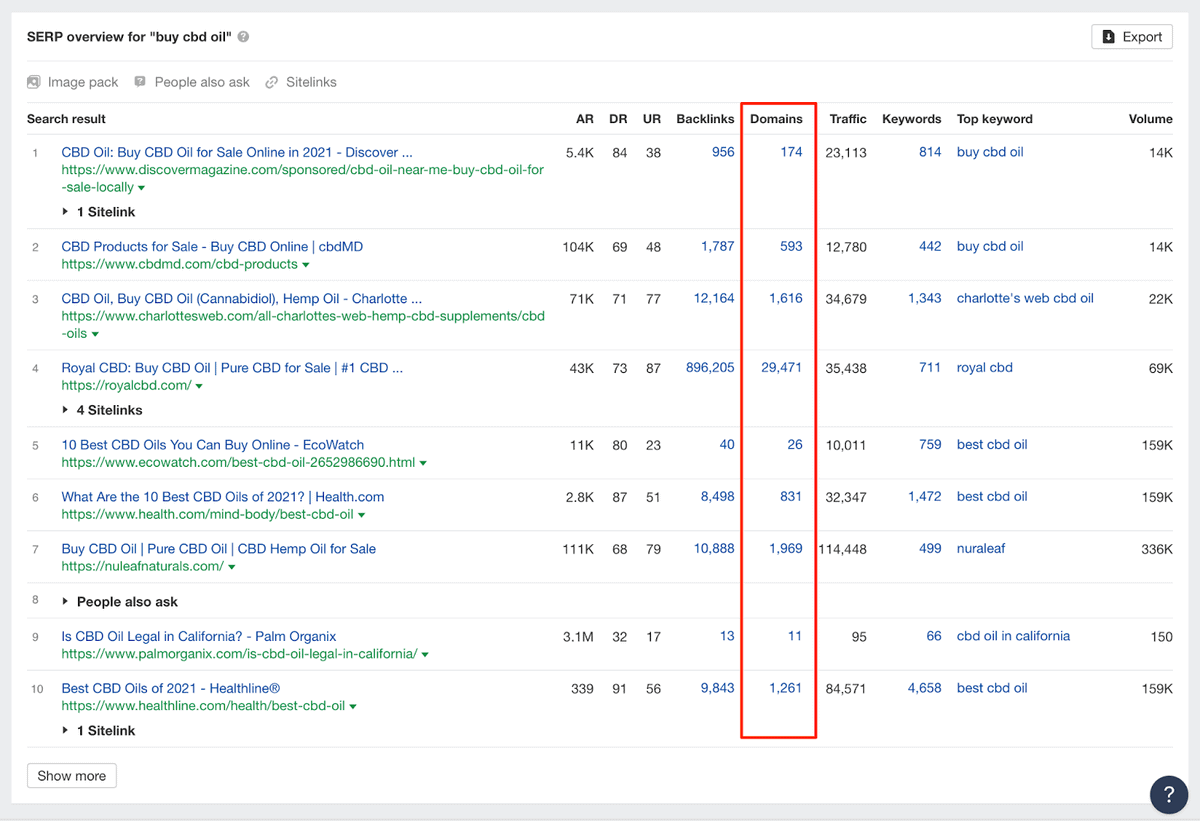
When we click into their referring domains and analyze their link profile, nothing jumps out that looks too bad here.
The backlinks are from high DR sites with real organic traffic.
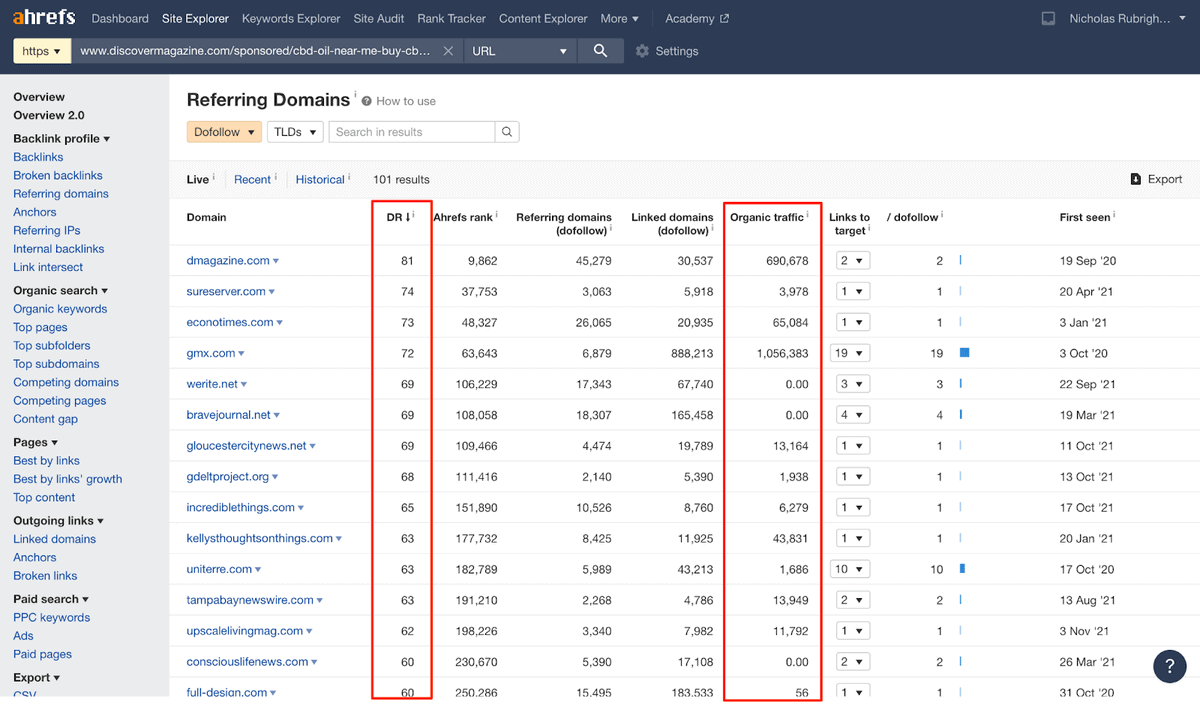
And the content these links are placed in looks pretty decent. Nothing jumps out that says these placements aren’t natural, initially.
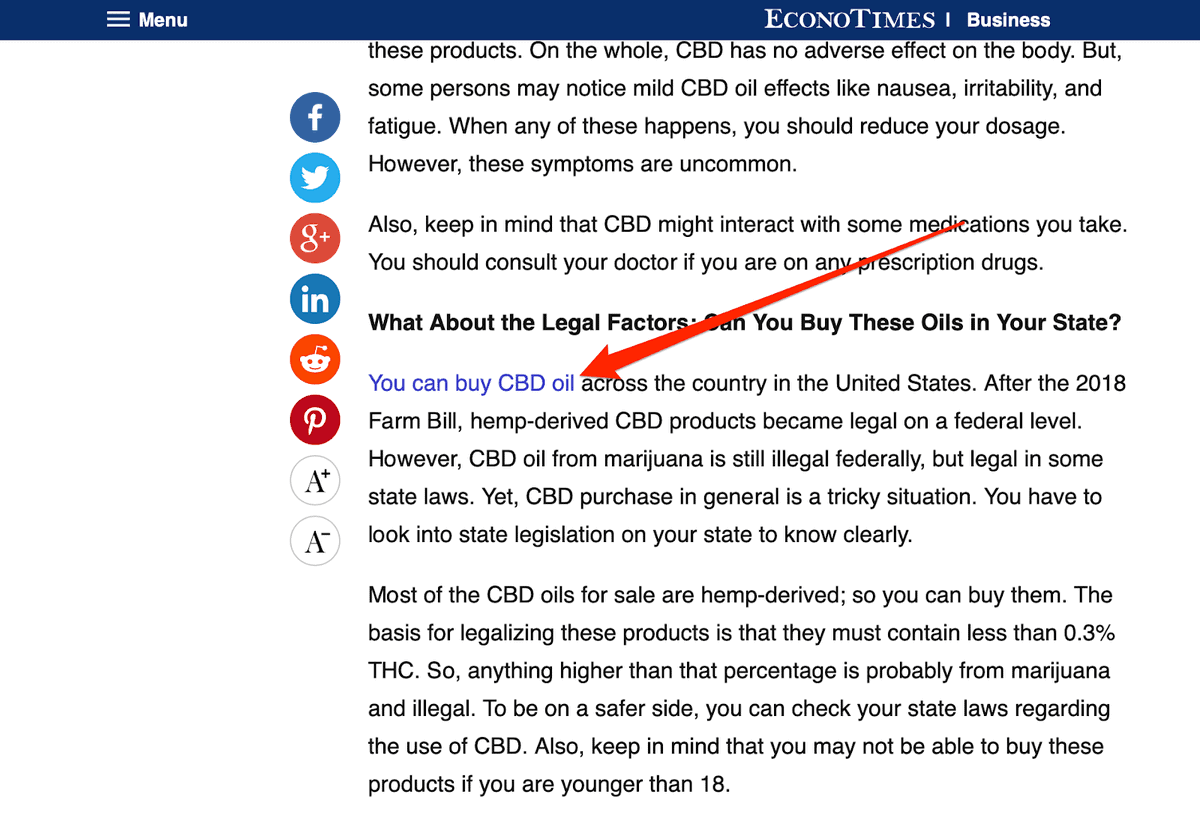
But there’s no way to know if they paid for that link, right?
And if we can’t know, then that means Google can’t know, right?
So we need to get over 100 backlinks to rank for “buy CBD oil.”
…right?
Not so fast! While we can’t know if these links are paid for, Google can.
And if they don’t?
Well, that doesn’t mean we have to play the black-hat link building game. That just means that we need to make sure Google does know that your competitors are buying backlinks (if they actually are).
The play is this:
- Run a link building campaign against your competitors.
- If the websites you email ask for money, report them to Google here.
See, if Google knows what domains are selling links, they can know who’s buying.
However, they don’t need to know about the buyers. They just don’t count any links going out from selling domains.
This is very likely how Google fights link spam. They don’t even need human engagement for this. If enough people report a domain for selling, they can automatically discount all of the links from that domain.
And Google isn’t afraid to take action on big sites. Even against themselves.
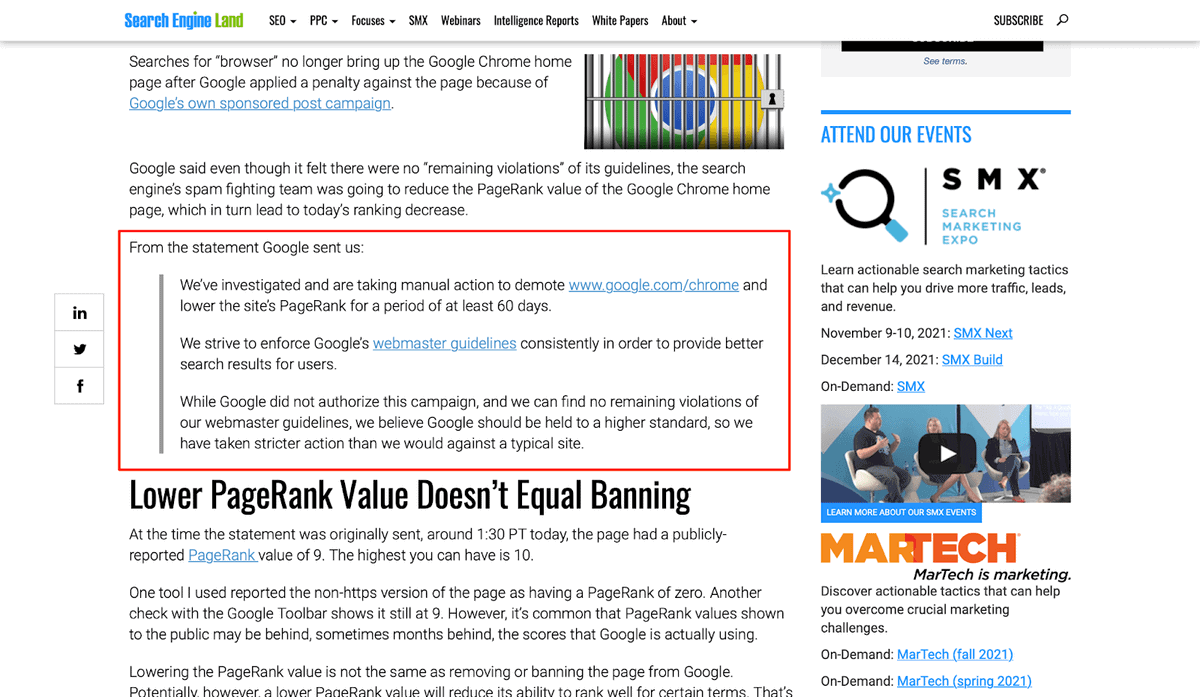
Yup. Google demoted their Chrome browser because that arm of their company was buying links.
If you think they won’t take action on these form submissions to improve their search results quality, think again.
Let’s dive into how you (or your link building provider) can find and report the links your competitors are buying while building some of your own.
Step 1: Reach out to sites linking to your competitors
You want more links, but you also want to report your competitors for their black-hat tactics.
Pairing a paid link reporting campaign with a link building outreach campaign is the best way to do this.
You likely already know the keyword you’re after, so what we want to do is reach out to all of the sites linking to the other domains that rank for that keyword.
This is very similar to a strategy known as the Skyscraper Technique where you would build content and reach out to bloggers and website owners linking to inferior content in an attempt to steal the backlinks.
For our purposes, you can follow this same outreach process for any page on your site. Even if it’s not a content-focused page.
Check out how this type of outreach is done for the Skyscraper Technique in this video (around 4 minutes is where he starts talking about the outreach process):
It’s tough to build a template for this since every use case is different, but here are some guidelines from Databox on crafting an effective link building email. Here are a few of my favorite tips from the piece:
- Write a compelling subject line that communicates urgency and captures their interest.
- Personalize your email template. A lack of doing so puts off most recipients and can result in lost opportunity.
- Explain clearly how the link benefits their audience and their business.
- Tailor it to your industry.
- Engage on social media prior to outreach. Doing this will result in them knowing your name by the time you send the email.
- Send follow-up emails. Most of our links come from following up.
Once you’ve crafted an email template for your campaign, find the email addresses of your prospects and set up an outreach sequence using some email automation software.
Here are a few to consider that my contacts and I have used:
- Mailshake: Mostly built for sales, but a lot of freelance link builders use this tool. We use it on many of our accounts. It does exactly what it needs to and is extremely easy for new users to follow.
- Ninja Outreach: Primarily designed for influencer outreach, which is very similar to link building outreach. A good option to consider.
- Woodpecker: Very similar to Mailshake, but a lot more customizable in how you can send (you can send based on the prospect’s time zone, for example).
- PitchBox: This is the big one that most large outreach companies use.
From here, you can manage the responses accordingly.
Step 2: Hit the paywall
If you win a backlink or guest posting opportunities from your outreach campaign, awesome!
However, pretty soon, you may start running into these types of responses:

Lots of link builders proceed to negotiate with these sellers. Your competitors probably are, too.
Because, like you, they’re thinking: “How can Google know what’s going on in my inbox?”
However, what they aren’t considering is that some other link builder who came in contact with this same website might take the next step that we’re about to.
Step 3: Report the sellers
Just go here and fill in the info to report them as a seller.
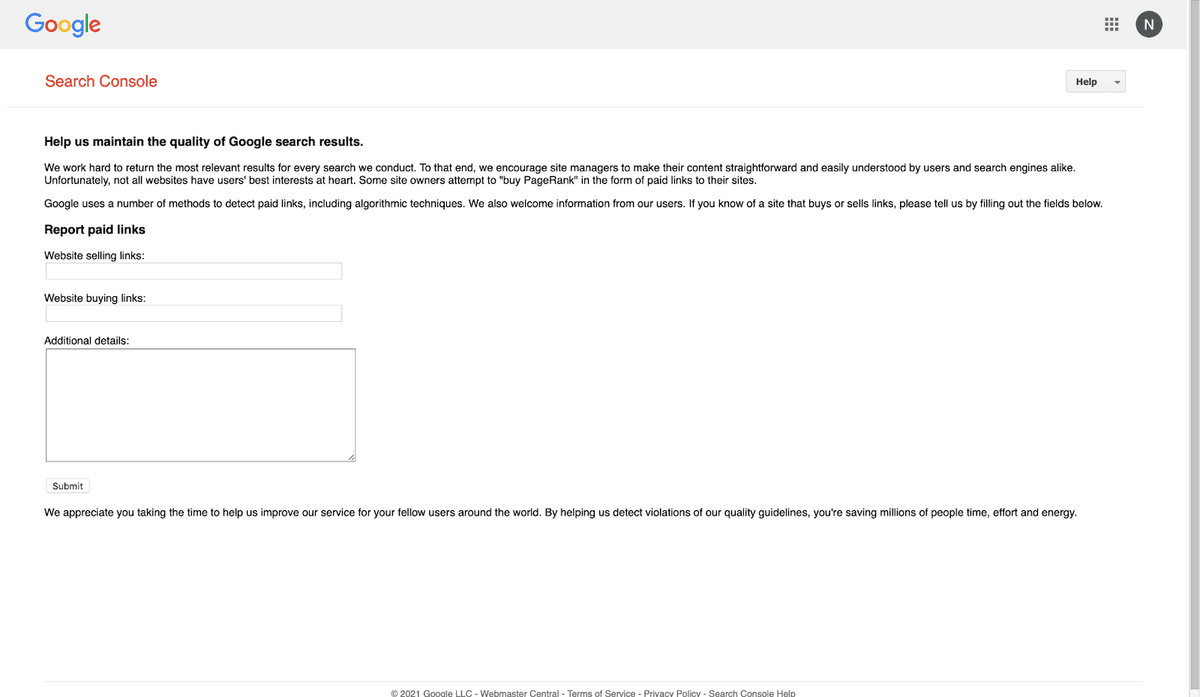
Once again, if Google knows the sellers that are out there, they don’t need to know the buyers.
So by reporting the domains that are selling the links your competitors are buying, you’re helping Google spot their bad behavior while staying on their good side with your white-hat link building techniques.
So when you outrank your competitors with fewer backlinks, you can rest easy knowing you aren’t at risk of a paid link penalty that will drop you in the future.
All while knowing that the answer to how you did this will stay behind closed doors, safe from the data-scraping tools your competitors are using.
The best part is, they’re probably going to continue on their paid link acquisition journey. So you can keep running this campaign to help them waste their marketing budget. 😉
